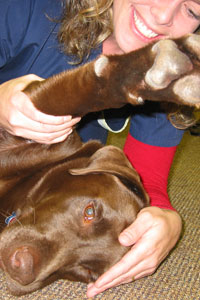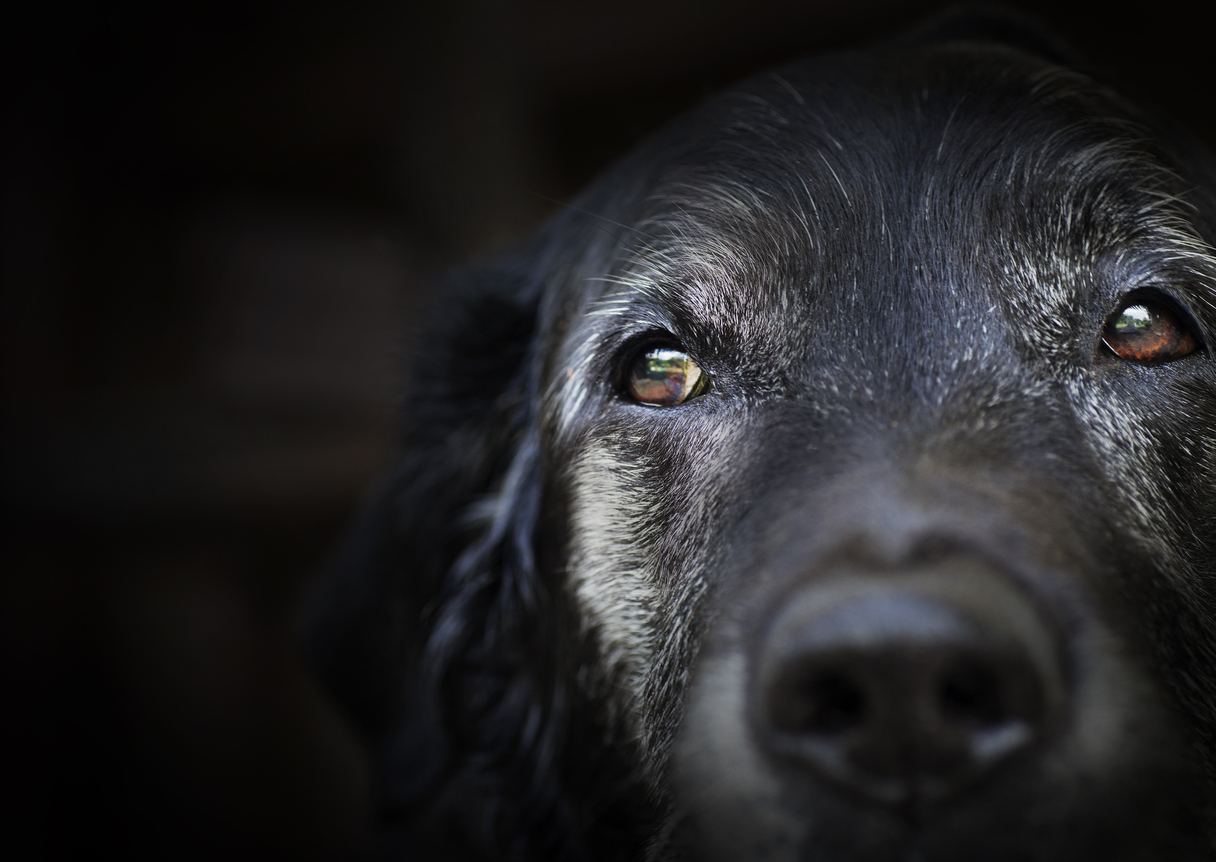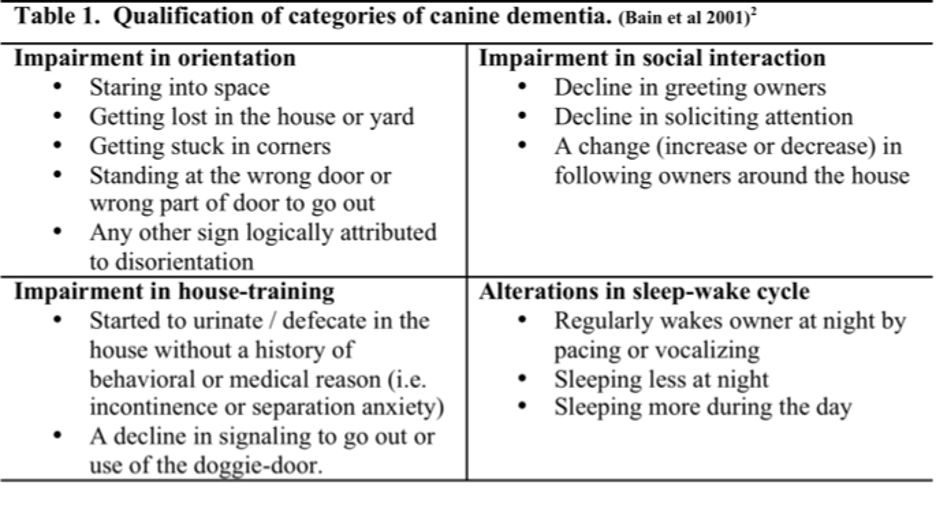| print
link to this post | email a friend Canine Dementia - Add Some Physio!30 Jul 2022 By Laurie Edge-Hughes, BScPT, MAnimSt (Animal Physio.), CAFCI, CCRT
Did you know that physio can play a role in managing Canine Cognitive Dysfunction? There are several things fall into the realm of rehabilitation that can make an impact on Alzheimer’s in people. Interestingly, canine dementia is very similar in how it affects the brain, so why wouldn’t the ‘human’ techniques work on dogs as well? Let’s dive in!
First off, what qualifies a dog as having cognitive dysfunction / dementia / Alzheimer’s?
Table one shows a list of things that would help to determine this diagnosis.
What qualifies as ‘cognitive dysfunction’? If the dog has two or more signs in one of these particular categories… At least once a week, and for one month or longer. There are other more comprehensive questionnaires, but for the purpose of this article, the list above is suffice to get to the next session.
What can YOU do for your dog with Canine Dementia?
Socialization & Enrichment People with dementia do well with socialization. Meeting up with other people, chatting, watching. Dogs are no different. Dogs take in a great deal of information about their environment by using their sense of smell. So, it’s still important to get your older dog out, even if just for a short walk. Go to the local ‘pee’ location and let your dog have a real-good sniff. If you are doing a canine sport with a younger dog, bring the older one along periodically to watch and visit with friends (human or animal).
Physical Exercise It has been shown in many studies that physical exercise seems to normalize brain wave patterns in Alzheimer’s patients. Any kind of exercise will be beneficial, just make sure that it is appropriate for the physical capabilities of your dog. We can offer swimming or walking in the underwater treadmill, or create a home program that incorporate balance, strength, and some cardiovascular work as well.
Anti-Oxidants and Omega Fatty Acids Good for people, good for dogs! It is reassuring to know that there has been quite a bit of research that was done jointly by human health practitioners, veterinary practitioners, and veterinary dog food companies. Since the pathology is the same, these various groups could use dogs to determine the effectiveness of various supplements. So, you could look into adding some fruits and vegetables to your dog’s meals such as spinach, tomatoes, carrots, or citrus pulp are some recommendations.
Tactile and Sensory Stimulation In this category, touching, grooming, petting, and massage can be of benefit. The touch is beneficial, but it also has an added benefit of being a nice thing to do with your dog, or an outing to take your dog.
Brain Games Cognitive games are used often in people as a preventative but also as a treatment for functional brain decline. There are toys that serve as brain games for dogs… but you can also create your own. Feeding toys like Kongs stuffed with treats can be useful, teaching some new tricks could be beneficial, or walking in a new area, senior doggy day care, or taking a beginners class in some dog-activity.
Day-Night Cycles It might be difficult if you are at work during the day, but if you are able to have your house filled with day light during the day and darker at night, this can help dementia dogs as well. Other things that can be of benefit would be walking in daylight hours and/or using SAD lights during the day.
Laser There are studies that look at using laser on the brain to help with Alzheimer’s and Dementia. The main thought is that the laser improves blood flow to the brain and hence helps it to heal. And of course, bringing your older dog for a physio appointment can incorporate not only laser, but touch, socialization, enrichment, and physical exercise… if we throw in a game of hide the cookie, we cover brain games as well!
So, if you have noticed your dog showing some of the classic dementia signs, then give us a shout and we’d be happy to help you out with some physio to help your older pooch!
|

|


